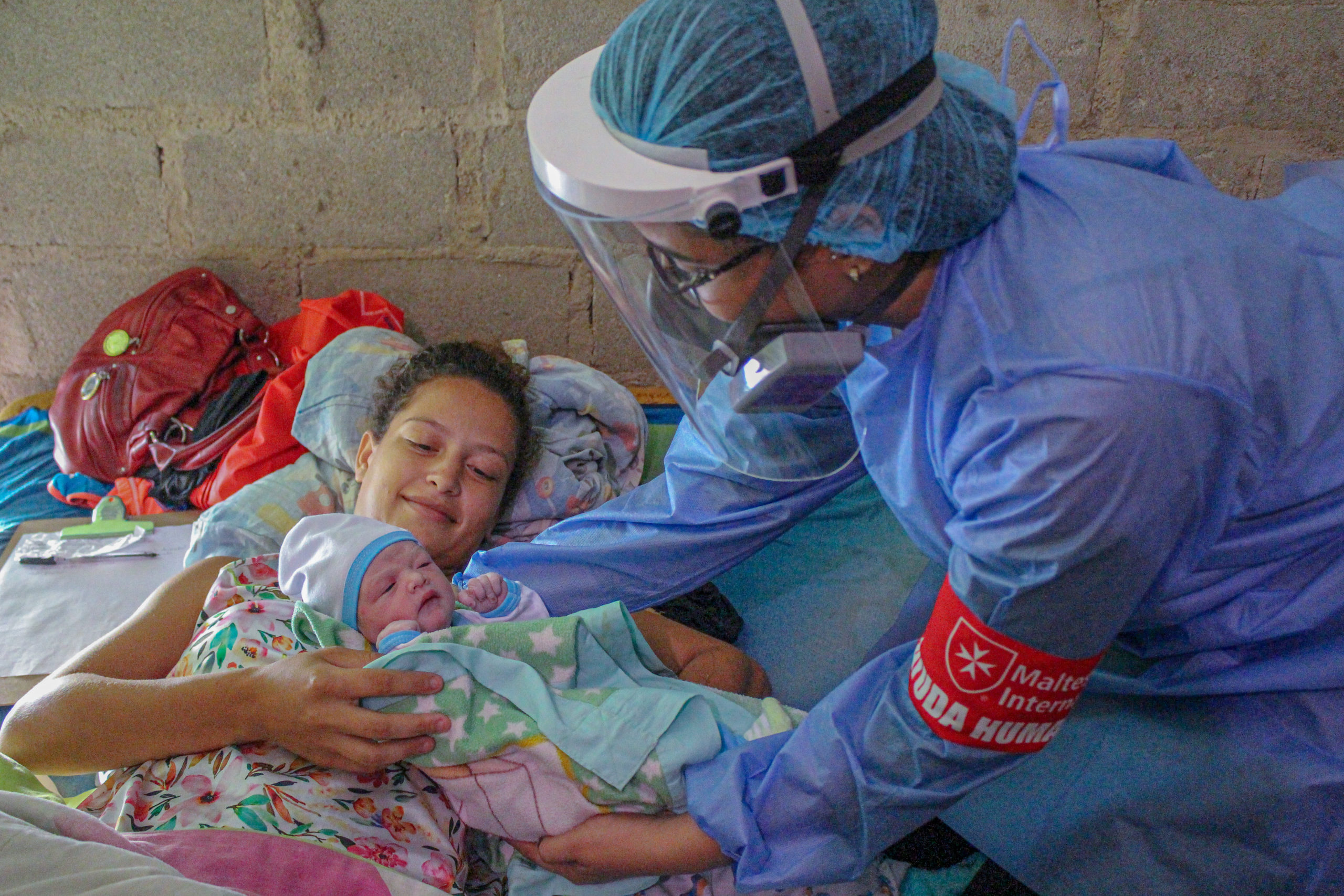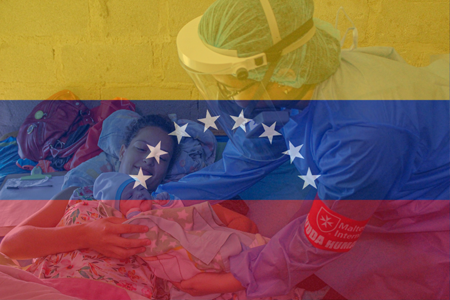South America
Saving Lives: Helping Malnourished Women Before, During, and After Pregnancy
It has been a few months since the onset of the Ukraine crisis and its ripple effects are beginning to be felt across the world. Global grain supplies have been disrupted and hunger is on the rise in many developing countries. The largest population migration in history continues as people flee the economic and political instability in Venezuela. To date 5.4 million Venezuelans have fled, 1.8 million of them to Colombia causing an overwhelming impact on its health and social welfare capabilities.
Never has our work fighting malnutrition and food insecurity ever been more vital, and we are continuing to support vulnerable populations with nutritional supplements to improve their condition, providing them with the care that they need. Studies have found that maternal food insecurity is associated with a threefold increase in the delivery of low-weight infants, which is even more pronounced in developing countries. Maternal malnutrition is one of the most common causes of complications to a pregnancy. In la Guajira in northern Colombia, one in five children under five dies from malnutrition, according to The Pan American Health Organization.
 The border areas of northeastern Colombia near Riohacha and Santa Marta have been among the region’s most heavily impacted. Malteser International Americas, the implementing agency of the Order of Malta for relief and development corporation in Western hemisphere, have had a growing presence in Northern Colombia the past 8 years providing neonatal, postnatal, and primary healthcare to migrants, indigenous people, and local residents at our clinics in Riohacha and Santa Marta.
The border areas of northeastern Colombia near Riohacha and Santa Marta have been among the region’s most heavily impacted. Malteser International Americas, the implementing agency of the Order of Malta for relief and development corporation in Western hemisphere, have had a growing presence in Northern Colombia the past 8 years providing neonatal, postnatal, and primary healthcare to migrants, indigenous people, and local residents at our clinics in Riohacha and Santa Marta.
We are doing everything possible to ensure a smooth pregnancy and a healthy birth, while accompanying new mothers throughout the whole process. It is thanks to our holistic approach supporting women before, during and after their pregnancy that we are able to successfully deliver babies and support every new life that is born in the vulnerable populations that we serve. We are also respectful of the immigrant populations that we help, and we make sure to provide support that is culturally sensitive. For example, the food kits we distribute to Venezuelan migrants include food they would eat in Venezuela, as we are knowledgeable of the idiosyncrasies of the ethnicities there. Along with essential foods like rice, beans and pasta we provide them with Venezuelan staples.
In the rural townships around La Guajira and Magdalena, Malteser International Americas has setup a series of projects to support nutrition and healthcare for vulnerable groups. In these locations last year we provided over 30,000 medical consultations, 6,600 mental health consultations and over 900 women received pre- and post-natal care for their child. These projects are having a tangible impact on the day-to-day life of families, mothers and migrants throughout the region and support them building a life of dignity.
Carol Rodriguez was one such recipient, as a Venezuelan migrant who experienced the pain of leaving her seven-year-old child behind in Venezuela to embark on a hazardous journey to build a new life in a new country.
“Malteser International Americas has treated me with the utmost respect, and I was shocked at first as I am not used to being treated that way. All doctors and nurses are very competent and personable, the approach the patient making him or her feel like nothing else matters in that moment.”
While this experience for Carol was a positive one, historically she hasn’t been so fortunate with negative experiences both in Venezuela and during her early months in Colombia where she felt she received second class care as an immigrant, if any at all.
“The experience with Malteser International Americas has taught me there are still good people in this world, and that a migrant can still be treated humanely. It has also shown me that organizations do comply with what they are entrusted with, and I can attest the funds MIA receives do go to help people in need.”
Carol’s experience with healthcare support is unfortunately commonplace for Venezuelan immigrants in Colombia where the refugee crisis spurred by Venezuela’s economic collapse is overwhelmingly felt. While we have been able to help her safely deliver the baby, there are many thousands that are left untreated and in need of help. Our work is just beginning.


